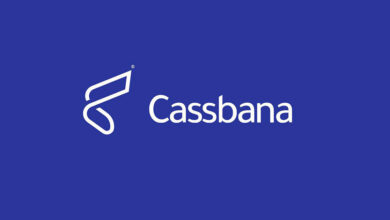The Entrepreneurship Opportunity in Egypt 3: B2C Tech products: are they free or sell-able?

Tech products are hands-down the most over-hyped and over-advertised as the high-risk-high-reward ticket to fame and riches through company exits. I started a tech product company based on a similar premise. I should know.
The rumors are not exactly false — tech products are A source of riches and company exits, if “done right”. What’s wildly outlandish is the presented odds of success and the tales of its smooth-sailing journey.
Many people naively and mistakenly think that once you launch a product that “everybody needs”, it will market for itself. It will break the internet. It will take a round-trip through all the accounts on Facebook.
While a miniscule set of products actually do create said kind of viral traction, for the majority of products, nothing could be further from the truth. You have to hit a very painful nerve in the market at the most opportune moment in time, in order for your product to market for itself completely by itself. And this cannot be something that happens with every product released into the market — at least out of sheer statistics.
My simple answer would be: pick a suitable vertical.
The keyword here is suitable, it shall be cleared up later.
So you are initially faced with one of 2 major directions: B2B or B2C tech products. Each direction has its merits and challenges. This article is about B2C tech products. B2B products are another story to be told in a future article.
B2C or consumer tech products
B2C tech products perhaps promise the most riches and glory. In fact, its promises are not entirely unfounded: B2C products have the potential to grow really big and build a massive brand with massive success. In addition, despite not being statistically representable, most unicorn tech products we hear of are B2C (a more objective overview here).
However, building a B2C product in Egypt does have its requirements, which are mostly tall orders. Here is the 1st one:
Don’t rely on app sales
A friend and fellow veteran entrepreneur — Mostafa Ashour, founded a company and created the app Boximize. It was on the top 10 apps list in the US for a while and got them a decent amount of sales — in the range of thousands of US Dollars. When its fame trickled down to the MENA region and it made the top 10 most popular paid apps list, their sales in Egypt, KSA and UAE never exceeded 300 USD total. Don’t get me wrong, Boximize is a success in the US, where they have launched it. It just didn’t do well in MENA.
Another example is Edukitten — which I’ve mentioned in a different context in my 1st article in this series. They started out in developing Arabic edutainment apps for kids of the age 2–4 years, targeting Arabian expats in the west and Arabs in the Gulf. Each of their apps had 2–5 stories and/or games and cost about 2 USD per download. While they suffered painfully to sell their apps, the noticed that parents were ready to pay 2–5 USD (or equivalent) per story to buy their kids physical/paper books and/or toys. The same parents were very reluctant to pay the same (or less) amounts for apps that did the same job, arguably even better. Even when their apps offered more value for money, it didn’t manage to change the mainstream parents’ position. And when they managed to sell their apps, they eventually lost due to the insanely high cost of acquisition they had to afford to advertise in the developed markets.
The list goes on. However, to maintain the integrity of my writing, there is an example that made it against all odds. It does have a pretty exceptional story that is really very difficult to replicate: iPhoneIslam.
iPhoneIslam started as an Arabic blog about iPhone related issues and Islamic iPhone apps. Back when it was incepted, there were hardly any blogs that curated similar content in Arabic. It built its audience upon stirring interest in KSA and among the Arabs in the USA by leveraging the fact that it was more or less alone in the market. The rule of thumb says that virality basically reduces your cost of acquisition, and all they had was vitality.
They have maintained a very high level of content quality and built a very cool app around it. The app is free, but they used their audience to push other paid apps of their own development onto the market. The large and very unique traction they had in their region was and still is the main reason enabling them to sell consumer apps to the public. iPhoneIslam is a combination of a set of unique unfair advantages that breaks my rule, and makes selling apps in MENA possible and profitable. However, if you are starting a company, it is extremely difficult to obtain iPhoneIslam’s unfair advantages, unless you are in fact, iPhoneIslam.
If you want to build an app and sell it, your best bet is to sell it in the USA and Europe. And to afford this, you need to build an app with killer UX and know the ins and outs of getting free publicity and exposure for it. Which speaks to the “unfair advantage” condition I’ve highlighted in my 1st article in this series. Otherwise you are screwed.
It has been brought to my attention by Muhammad A. Ali that the decline of the paid apps business model is a global phenomenon, not just an Egyptian or an Arab one. There is in fact a global expectation that apps are downloadable for free, and then you pay for other stuff, if any.
To anticipate the smarty-pants who will be reading this article, and will post some certain comments suggesting other business models, here is a quick disclaimer:
- I realize that there are multiple business models that can be deployed to keep an app free while having someone pay for other stuff. It shall be tackled in later articles
- The Freemium model can be interesting for apps (offer a limited version of the app for free and a full version for a fee), and it shall be part of a future article.
- Subscription models are a world of their own and they have their own dynamics — also part of a future article.
- Selling Digital goods basically makes you enter the realm of ecommerce — you guessed right, part of a future article.
- Advertising based business models — no you guessed wrong, it is not part of a future article, it is the next article 😀
Advertising has a lot of hidden dynamics that I will share with you next time 🙂
Stay tuned!



